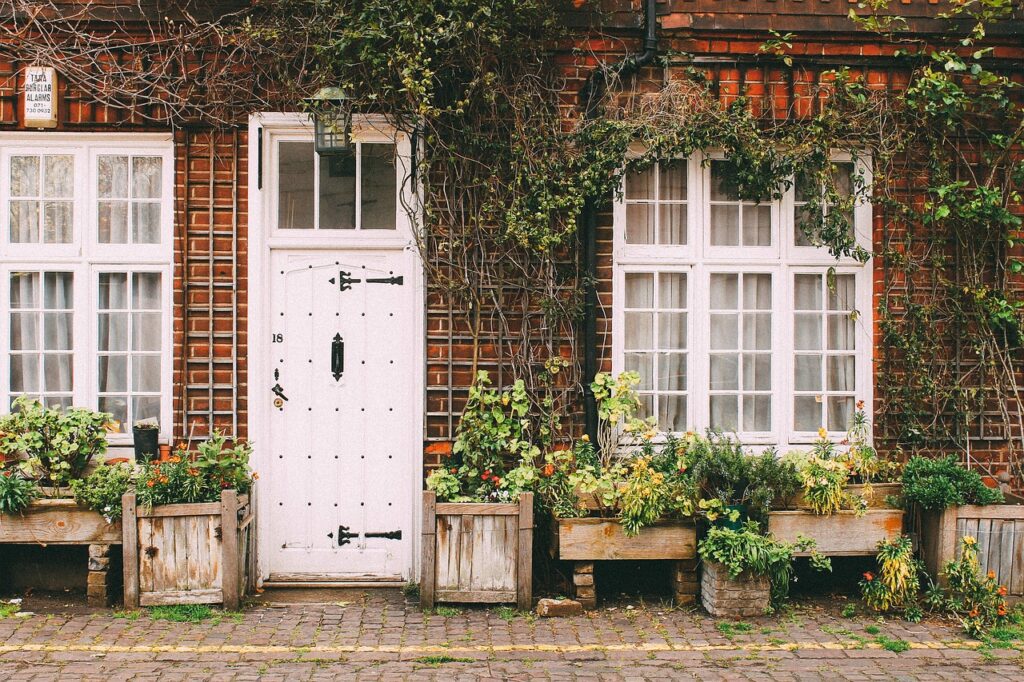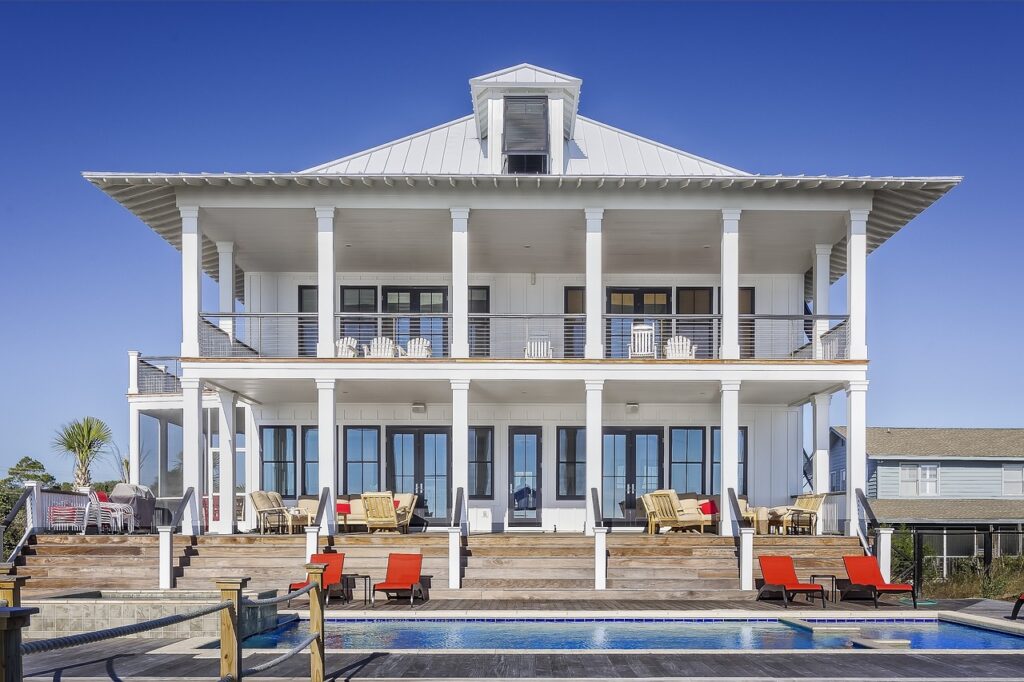Buying a home as-is can be an attractive option for those looking for a quick and potentially cost-effective way to purchase a property. When buying a home as-is, it means that the seller is not responsible for making any repairs or renovations before the sale. This can be appealing to buyers who are willing to put in the time and effort to fix up the property themselves.
One of the advantages of buying a home as-is is that it often comes at a lower price compared to homes that are move-in ready. With no repairs or updates required from the seller, buyers may have more negotiating power when it comes to pricing. This can be especially beneficial for buyers who have some DIY skills or are looking for a fixer-upper project.
However, it’s important to approach buying an as-is home with caution. Without proper inspection and due diligence, there could be hidden issues or costly repairs needed down the line. It’s crucial for buyers to thoroughly assess the condition of the property and consider potential expenses before making an offer.
In conclusion, buying a home as-is can be an appealing choice for those seeking affordability and are willing to take on renovation projects. However, it’s essential to conduct thorough inspections and evaluations before committing to ensure you’re aware of any potential issues or costs involved in bringing the property up to your desired standard.
Understanding the Concept of Buying a Home As-Is
When it comes to purchasing a home, buyers often have specific criteria in mind. They may be looking for a move-in ready property or one that requires minimal repairs. However, there is another option to consider – buying a home as-is. In this section, I’ll explain what it means to buy a home as-is and highlight some key points to keep in mind.
What does “as-is” mean?
Buying a home as-is essentially means that the property is being sold in its current condition, without any repairs or renovations made by the seller. This can include both cosmetic issues and structural problems. As the buyer, you are responsible for assessing the condition of the house before making an offer.
Why would someone sell their home as-is?
There are several reasons why a homeowner might choose to sell their property as-is. It could be due to financial constraints or time limitations that prevent them from completing necessary repairs. In other cases, they may simply prefer not to invest any further into the house before selling.
Pros and cons of buying a home as-is
Like any real estate transaction, buying a home as-is has its advantages and disadvantages. Let’s take a look at some:
Pros:
- Potentially lower purchase price: Since you’ll be taking on any needed repairs yourself, you may have more negotiating power when it comes to pricing.
- Opportunity for customization: By purchasing an as-is property, you’ll have the chance to renovate and customize it according to your own preferences.
- Less competition: Some buyers may shy away from homes listed as-as due to potential risks or uncertainties, which could mean less competition during your search.
Cons:
- Unknown repair costs: Without proper inspection and assessment, it can be challenging to determine how much repairing an as-is property will actually cost.
- Potential hidden issues: There’s always the risk of discovering unforeseen problems after purchasing an as-is home, which can add to your expenses.
- Limited seller disclosures: Sellers are not required to disclose all issues with the property when selling it as-is, so you’ll need to conduct thorough due diligence.
Conclusion
Buying a home as-is can be a viable option for buyers who are willing to invest time and money into repairs and renovations. It’s crucial to thoroughly inspect the property and consider potential costs before making an offer. By understanding the concept of buying a home as-is, you can make informed decisions that align with your goals and budget.
Pros and Cons of Buying a Home As-Is
When it comes to buying a home, there are many factors to consider. One option that some homebuyers may come across is purchasing a property “as-is.” This means that the seller is not responsible for making any repairs or improvements to the home before the sale. While this can be an attractive option for some buyers, it’s important to weigh the pros and cons before making a decision.
Pros of Buying a Home As-Is

- Lower Price: One of the main advantages of buying a home as-is is that you may be able to secure it at a lower price compared to similar properties in better condition. Sellers often price homes as-is below market value to account for potential repairs that buyers will need to make.
- Opportunity for Customization: Purchasing an as-is property gives you the freedom and flexibility to renovate and customize the home according to your preferences and needs. You have full control over how you want to upgrade or update the property without having to compromise on someone else’s design choices.
- Potential Investment Opportunity: If you have experience in renovations or access to reliable contractors, buying an as-is property can present an excellent investment opportunity. By purchasing at a discounted price, making necessary repairs, and improving the condition of the home, you could potentially increase its value significantly.
Cons of Buying a Home As-Is
- Hidden Issues: When buying an as-is property, there is always a risk of hidden issues that may not be immediately apparent during the inspection process. It’s crucially important to conduct thorough inspections or hire professionals who can identify potential problems such as structural issues, plumbing or electrical problems, or mold infestations.
- Financial Burden: Since sellers are typically not willing to make any repairs on as-is properties, buyers are responsible for shouldering all repair costs. This can be a significant financial burden, especially if the repairs are extensive or unexpected.
- Limited Financing Options: Some lenders may have stricter guidelines when it comes to financing as-is properties. It’s important to check with your mortgage lender beforehand to ensure that you will qualify for a loan and understand any limitations or requirements associated with purchasing an as-is property.
In conclusion, buying a home as-is has its advantages and disadvantages. While it can offer a lower price and customization opportunities, buyers should be prepared for potential hidden issues and the financial responsibility of repairs. It’s essential to thoroughly inspect the property and consider all factors before making a decision.
Evaluating the Condition of an As-Is Property
When considering buying a home “as-is,” it’s important to thoroughly evaluate the condition of the property. This means taking a closer look at its overall state, including any potential repairs or issues that may need to be addressed. In this section, I’ll share some key points to consider when evaluating the condition of an as-is property.
- Inspecting for Structural Integrity: One of the first things you should assess is the structural integrity of the property. Look for signs of foundation problems, such as cracks in walls or uneven floors. Pay attention to any sagging ceilings or doors that don’t close properly, as these can indicate underlying issues.
- Assessing Electrical and Plumbing Systems: It’s crucial to examine the electrical and plumbing systems in an as-is property. Check for outdated wiring or plumbing fixtures that may require updating. Faulty electrical systems can pose safety hazards, while plumbing issues could lead to leaks and water damage.
- Examining Roof and Exterior: A thorough inspection of the roof and exterior is essential in evaluating an as-is property’s condition. Look out for missing shingles, signs of water damage, or rotting wood on siding or windows. These issues could potentially lead to costly repairs down the line.
- Checking HVAC Systems: Don’t forget to inspect heating, ventilation, and air conditioning (HVAC) systems in an as-is property. Ensure they are functioning correctly and have been well-maintained over time. Replacing HVAC units can be expensive, so it’s important to factor their condition into your decision-making process.
- Consider Professional Inspections: While you can conduct a visual inspection yourself, it’s highly recommended to hire professional inspectors who specialize in assessing homes’ conditions. They have expertise in identifying hidden problems that you might overlook.
- Budget for Repairs: Based on the condition assessment, create a budget for necessary repairs or renovations. This will help you determine if the as-is property is a worthwhile investment and give you an idea of the potential costs involved.
Remember, buying an as-is property means taking on any existing issues or repairs yourself. While it can be an opportunity to purchase a home at a lower price, be sure to carefully evaluate its condition and consider whether you’re prepared to handle any necessary repairs or renovations.
Navigating the Inspection Process for As-Is Homes

When purchasing a home “as-is,” it’s important to understand that you’re accepting the property in its current condition, without any guarantees or repairs from the seller. This means that thorough inspection becomes even more crucial to ensure you’re making an informed decision. Here are some key points to keep in mind when navigating the inspection process for as-is homes:
- Hire a qualified home inspector: Finding a reputable and experienced home inspector is essential when evaluating an as-is property. Look for someone who specializes in inspecting older or distressed homes, as they may have expertise in identifying potential issues that could arise.
- Inspect visible areas first: Start by examining the visible areas of the house, such as walls, flooring, windows, and doors. Look out for signs of water damage, mold, cracks, or other structural issues that might require significant repairs.
- Consider specialized inspections: Depending on the age and condition of the house, it may be beneficial to seek specialized inspections beyond a general home inspection. These can include assessments of electrical systems, plumbing, roofing, foundation stability, or pest infestations.
- Request documentation: Ask the seller for any available documentation related to previous repairs or renovations made on the property. This information can give you insights into any past issues and help you assess potential future concerns.
- Negotiate repairs or price adjustments: Once you receive your inspection report detailing any issues found within the as-is property, consider negotiating with the seller regarding necessary repairs or price adjustments based on estimated repair costs.
- Consult with professionals: If major issues are identified during inspections but you still wish to proceed with purchasing the home as-is, consult with contractors or specialists in those specific areas to get accurate estimates for repair costs and feasibility.
- Be prepared for unexpected surprises: Keep in mind that despite thorough inspections, there may still be hidden issues that only surface after you’ve purchased the property. Set aside a contingency fund to account for any unforeseen repairs or maintenance that may arise.
Remember, buying an as-is home can come with risks, but it can also present opportunities for those willing to invest time and resources into renovations. By understanding the inspection process and being diligent in your evaluations, you can make an informed decision and potentially turn a neglected property into your dream home.
Negotiating Price and Repairs for an As-Is Property
When buying a home “as-is,” it’s important to understand that you are accepting the property in its current condition, without any repairs or improvements from the seller. However, this doesn’t mean that you can’t negotiate on the price or request certain repairs before finalizing the purchase. Here are some key points to keep in mind when negotiating price and repairs for an as-is property:
- Conduct a thorough inspection: Before entering into negotiations, it’s crucial to have a professional home inspection done. This will help identify any major issues or hidden problems with the property that may affect its value or your decision to proceed with the purchase.
- Research comparable sales: Do your homework and gather information about recent sales of similar properties in the area. This will give you an idea of how much similar homes have sold for and provide leverage during negotiations.
- Determine repair costs: Assess the cost of necessary repairs and renovations based on estimates from contractors or industry professionals. This will help you determine how much you should deduct from the asking price or request as concessions from the seller.
- Be realistic with your requests: While negotiating, be mindful of what is reasonable to ask for in terms of repairs or price reductions. Major structural issues or safety hazards may warrant more negotiation power, but minor cosmetic concerns may not hold as much weight.
- Consider potential risks and rewards: Evaluate whether taking on an as-is property is worth it considering potential risks and rewards involved. If there are significant savings in purchasing an as-is property compared to move-in ready homes, it might be worth investing time and resources into repairs.
- Get everything in writing: When reaching an agreement with the seller, make sure all negotiated terms regarding price reductions, repair credits, or specific repairs needed are documented in writing through addendums to protect both parties.
Remember, negotiating the price and repairs for an as-is property requires careful consideration and thorough research. By being well-prepared and reasonable in your requests, you can increase your chances of securing a fair deal that suits your needs and budget.
Working with Real Estate Agents in Buying As-Is Homes
When it comes to purchasing a home as-is, working with a knowledgeable and experienced real estate agent can be invaluable. They can guide you through the process and help ensure that your interests are protected. Here are a few key points to keep in mind when working with real estate agents in buying as-is homes:
1. Expertise in As-Is Transactions
Real estate agents who specialize in as-is transactions have a deep understanding of the unique challenges and opportunities that come with buying these types of properties. They are familiar with local laws and regulations regarding disclosures, repairs, and negotiations, which is essential when dealing with potential issues that may arise during the purchase process.
2. Access to Listings
A real estate agent has access to a wide range of listings, including as-is properties that may not be easily found by the general public. This gives you an advantage in finding suitable options within your desired location and budget.
3. Knowledge of Market Value
Determining the true market value of an as-is property can be challenging due to its condition or any necessary repairs. A skilled real estate agent can assess comparable sales data, evaluate the property’s potential after renovations, and provide you with accurate information about its current market value.
4. Negotiation Skills
Negotiating on your behalf is one of the most important roles of a real estate agent when buying an as-is home. They will work diligently to secure the best possible price for you while considering any needed repairs or renovations.
5. Network of Professionals
Throughout the homebuying process, there may be various professionals involved such as inspectors, contractors, or lenders. A well-connected real estate agent will have a network of trusted professionals they can recommend to assist you throughout each stage of purchasing an as-is home.
In conclusion, working with a reputable real estate agent who specializes in buying as-is homes can greatly enhance your chances of finding the right property at the best possible price. Their expertise, access to listings, knowledge of market value, negotiation skills, and network of professionals will be instrumental in navigating the unique challenges that come with purchasing an as-is home.
Financing Options for Purchasing an As-Is Home
When buying an as-is home, it’s important to consider the financing options available to you. While traditional mortgage loans may be more challenging to obtain for as-is properties due to their condition, there are still viable alternatives that can help you achieve your goal of homeownership. Here are a few financing options worth exploring:
- FHA 203(k) Rehabilitation Loan: This loan program offered by the Federal Housing Administration (FHA) allows buyers to finance both the purchase and renovation costs of an as-is property into one mortgage loan. With this option, you can borrow funds based on the projected value of the home after repairs or renovations.
- Conventional Renovation Loan: Similar to the FHA 203(k) loan, conventional renovation loans enable buyers to finance both the purchase price and renovation costs in a single mortgage loan. These loans may have stricter qualification criteria but offer flexibility in terms of property types and repair budgets.
- Home Equity Line of Credit (HELOC): If you already own a home with equity built up, a HELOC could be an option for purchasing an as-is property. By tapping into your existing equity, you can access funds that can be used towards purchasing and renovating the home.
- Cash-Out Refinance: If you currently have a mortgage on your primary residence and have accumulated equity over time, a cash-out refinance might provide the necessary funds for purchasing an as-is home outright or making necessary repairs upfront.
- Personal Loans or Hard Money Loans: In cases where traditional financing is not feasible due to property condition or other factors, personal loans or hard money loans can provide short-term funding for purchasing as-is homes. However, these types of loans often come with higher interest rates and stricter repayment terms.
It’s important to note that each financing option has its own pros and cons, and you should carefully evaluate which one aligns with your financial circumstances and long-term goals. Consulting with a mortgage professional or financial advisor can help you navigate through the available options and choose the best fit for your situation.
Remember, buying an as-is home can be a great opportunity, but it’s crucial to thoroughly assess the property’s condition and potential repair costs before making any financing decisions.

